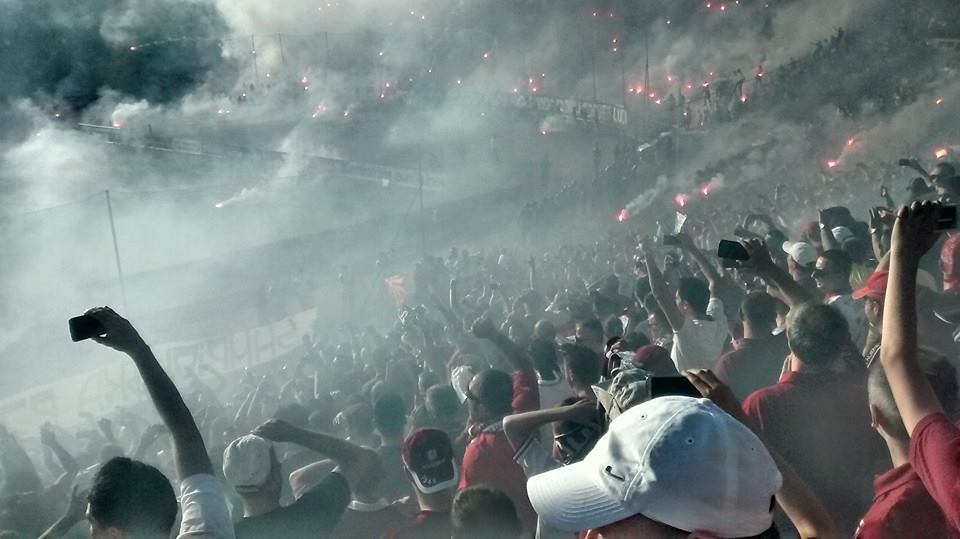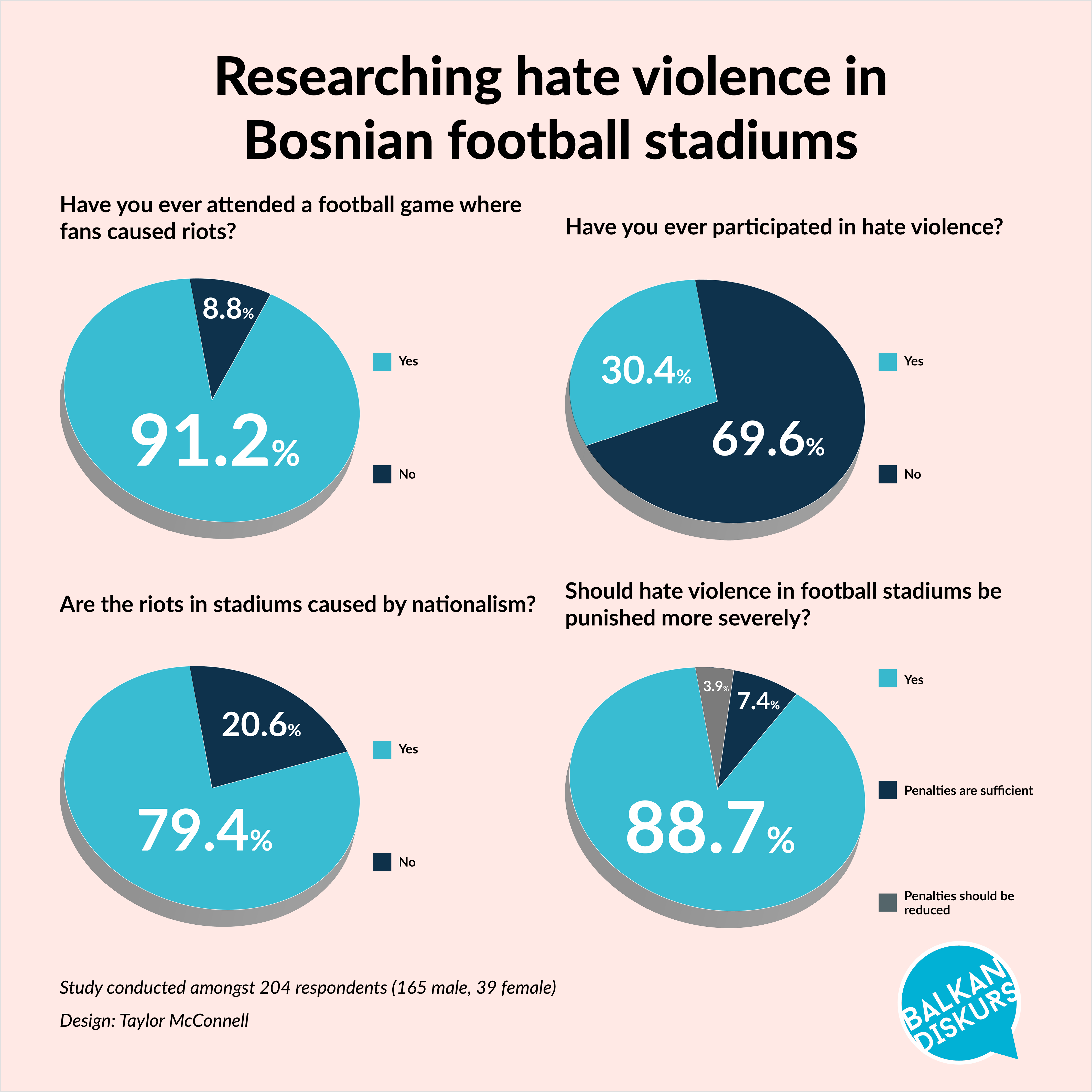
The phenomenon of expressing hatred in the stands and stadiums of Bosnian football clubs has not yet subsided. Experts claim that those in the stands are used to expressing the rage accumulated in their personal lives.
Football fan A.S. (identity known to Balkan Diskurs) told us that the riots in football stands arise from nationalist tensions and usually occur when the fans come from different entities.
“There is never a problem when “Horde Zla” (supporters of FK Sarajevo) come from Sarajevo to Zenica. There will be cheering and trash talk, but that happens everywhere in the world and it’s about proving who’s better. It’s much worse when we from Zenica go to Banja Luka,” said A.S.
Bahrija Savarymoottoo, a social worker at the General Hospital in Zenica explains that a fan in a group of 200, 500, or more people, feeds off the energy of others and becomes a lot stronger and more dangerous when part of a mob.
“Most fans come to a stadium to release all the rage that has accumulated due to various personal events in their lives. All their problems are solved in the stadium’s stands through angry shouting, destruction of property – whether it’s their club’s or the opposing team’s property, state or private property – and inflicting physical and emotional injuries to the other team’s fans,” said Savarymoottoo.
State and entity laws do not have regulations that could prevent violence and hatred on sporting fields. In some cantons, like Zeničko-dobojski, the situation is solved through the Law on the Safety of Holding Sports Events, which sanctions the display of banners that incite hatred and violence or offend national, religious, or other feelings of citizens.
Apart from these regulations, this law also prescribes penalties for individuals and sports associations that organize the event. A sports association can be fined from 1000 to 5000 BAM for negligence and non-compliance with this law. Individuals can be fined from 300 to 500 BAM and be banned from soccer matches anywhere from 3-12 months.
In order to analyze the manifestations of hate speech on the sports fields of Bosnia-Herzegovina, Balkan Diskurs organized an online survey that was shared on several sports sites and forums in the country. A total of 204 people have taken the survey, of whom 165 were male and 39 were female.
The questions and results of the survey are presented below.

Unsportsmanlike conduct from groups or individuals is not uncommon in other countries either and is referred to as hooliganism. That term is used to describe fans that damage society through behavior that violates appropriate norms.
Hooligans are believed to have originated in Great Britain. The word ‘hooliganism’ was used to describe street gangs and their members in the middle and late 19th century.
British stadiums were ruled by hooligans. Each club had ‘fans’ that hated, beat and even killed each other. They also directed their hatred at players, referees, police officers and security guards. Their behavior in the football stands spilled over into the rest of the city, where they destroyed private and state property, burned cars, broke windows, looted, and spread chaos throughout the city.
Today hooliganism is still present, but the situation is much better than before. Rigorous laws, as well as efforts by the clubs and the broader community, have played a large role in preventing hatred and violence in Great Britain, but hooliganism hasn’t been completely eradicated.






